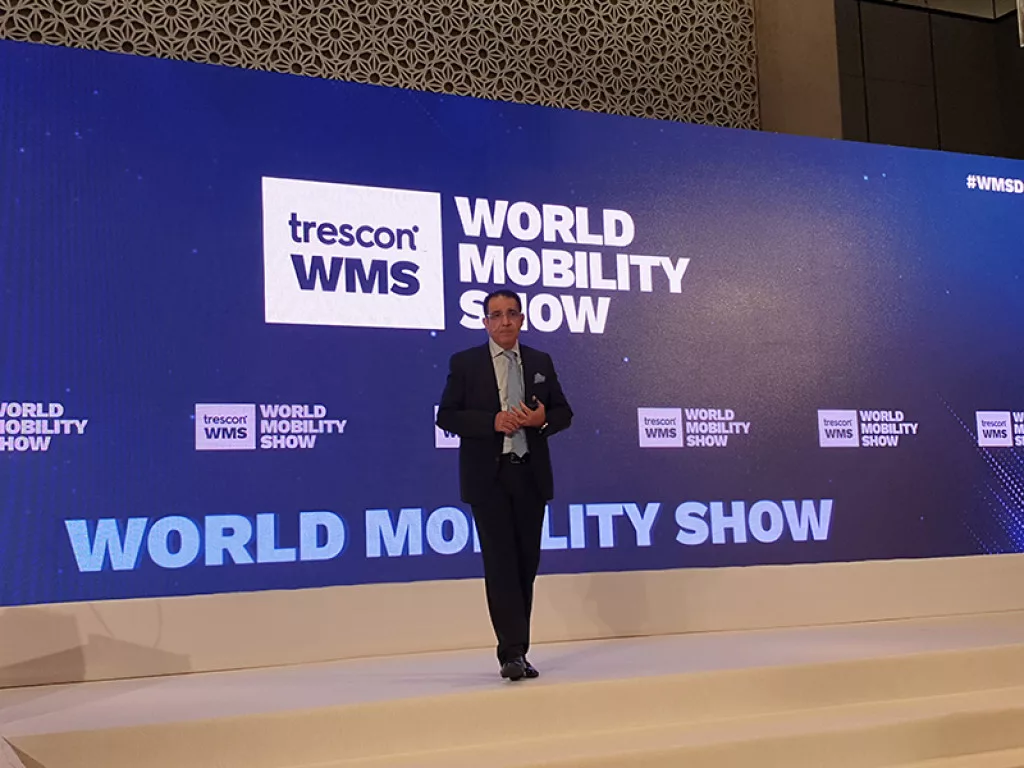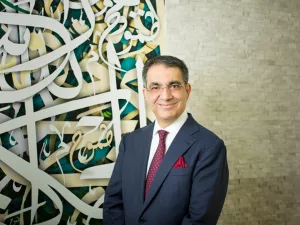We dissect the Automotive Association Middle East & North Africa as it seeks to recover from the pitfalls of the COVID-19 pandemic, fuelled by investment and innovation.
MENA AUTOMOTIVE SPOTLIGHT
A growing industry composed of a network of manufacturers, importers, suppliers, professionals and consumers; MENA’s auto industry is in a state of flux. At present, the sector is defined by the tailwinds of a movement towards Autonomous, Connected, Electric and Shared Mobility vehicles (ACES), as the market continues to redefine itself in times of transition.
Accompanying the drive for innovation, simultaneously, the sector is faced with navigating the aftermath of the pandemic which has triggered sector-wide disruption. As an industry defined by the traditional concept of the ‘handshake deal’, as with all consumer-facing industries that cannot rapidly respond to an online transition, automotive vendors continue to weather a significant slump in sales, fed by a weakened demand for transport corresponding with restrictions on global mobility.
According to Arab News, in Saudi Arabia – previously recognised as the world’s fastest growing motor industry between 2010-2015 – new car sales fell by 60 percent during 2020 with a severe impact on the aftermarket as average spend per vehicle dropped by 25 percent. Indeed, across the MENA automotive market in general, third quarter sales across 2020 fell by 29.6 percent – despite every country recording a double-digit decline, Egypt alone reported positive growth. The general trend in market decline has been identified as a direct result of COVID-19’s impact on the economy.
Within the region, the oil-rich country of the UAE has become notable for importing high-end sports vehicles, with an outlook to establish itself as a manufacturing hub for luxury sports cars over the coming decades. This falls within the greater aims of the Gulf Cooperation Council (GCC) region towards economic diversification. As such, this is a market poised for significant growth with Saudi Arabia and the UAE representing the major drivers. The growth potential here is significant particularly with the advent of electric vehicles (EVs).
Indeed, Saudi Arabia is a promisingly dynamic region within the sector, particularly with the recent addition of female consumers directly increasing the number of passenger vehicle sales and transforming the industry since Crown Prince Mohammed bin Salman lifted the ban on women drivers in 2018.
Turning to North Africa, Morocco’s auto industry has flourished to become the kingdom’s top exporter, representing over 24.4 percent of the country’s major exports. This is another area tipped for growth, as fertile ground for foreign automakers to open manufacturing plants. Looking to Egypt, the industry is still in recovery mode and is the recipient of significant government-led funding and support in an effort to revive the sector. Indicative of the intention to boost the country’s domestic production capacity, Mercedes-Benz announced plans to the Egyptian market with the construction of a new vehicle assembly plant following a statement in 2019.
Gradually, a burgeoning inclination towards digitalisation has begun to emerge, with MENA retailers exploring the potential of virtual showrooms and even the possibility of online car sales, as evidenced by success in the US auto markets. This is reflective of the innovative transformations that have been born from the pandemic.
In the face of such dynamic changes and shifts in consumer behaviour, the need is born for a unifying voice to consolidate and advocate for the many various players and stakeholders within the automotive sector.
Q&A WITH THE AUTOMOTIVE ASSOCIATION OF THE MIDDLE EAST AND NORTH AFRICA (AMENA)
Spanning the crucial divide between manufacturers, dealers, partners and professionals, AMENA have been the organisation to unify the automotive industry across the MENA region since 2018. Founder and Chairman Alan Whaley explores raising industry standards and driving innovation through thought leadership and knowledge sharing.
Can you talk us through the origins of AMENA; how it came about, and its initial vision?
Alan Whaley, founder and Chairman (AW): After working in the automotive industry in the MENA regions for over 10 years, I realised there was no professional body for the original equipment manufacturers (OEMs), dealers/importers, Third Party suppliers and the people who work in the industry. This is unlike other parts of the world whereby either by country or continent, there is an organisation that helps and serves the industry.
I then canvassed opinion with various leaders and organisations for the need for such a body to exist and the response was overwhelming – hence AMENA was born.
The purpose of AMENA is to enable prosperity and success for manufacturers, dealers, partners, and professionals in the automotive industry in the region. The association delivers on this promise through insights and intelligence, collaboration, professional development, knowledge sharing, networking opportunities, and advocacy.
Since inception, how has AMENA developed and progressed in terms of its key objectives and the messages it tries to get across?
AW: We have been involved in various projects and pressing issues that are facing the automotive industry, things like ‘Women in Automotive’ and that was our first event, we continue to support this cause with our partners across the region.
We are also involved in future mobility and how the industry is embracing itself for the new norm, the industry is going through its biggest infliction points since its inception over 150 years ago and the transformations are exclusively across the chain and the industry.
We also hosted the Innovation Zone 2020 for Automechanika Dubai (the largest international automotive aftermarket trade show in the Middle East).

What do you find most exciting about working within MENA’s automotive market?
AW: We actively enable prosperity and success for manufacturers, dealers, partners, and professionals in the automotive industry across the region. We deliver on this promise through insights and intelligence, collaboration, professional development, knowledge sharing, networking opportunities, and advocacy.
On the flip side, what are its biggest challenges?
AW: Changing the old school thinking behind everything being normal and eventually will return to normal. It is the avoidance or resistant approach to change that we know will cost organisations and individuals dearly if they don’t adapt or respond to the ‘new normal’ in the wake of the COVID-19 pandemic.
What trends are currently transforming the automotive industry, particularly across the Middle East? How are you responding to them?
AW: Customer expectations are changing rapidly both in terms of the way they buy and the way they give their loyalty, both of which involves re-engineering customer journey and touch points and digital transformation.
Some organisations are adapting well and are fairly advanced in their journey. Some unfortunately are way behind and just haven’t made the move yet. There are many but of course the main ones are ACES, but most importantly, customer behaviour and expectations.

“I am delighted to announce that we have created the first of its kind Automotive Academy to develop and equip the leaders of the automotive industry”
Alan Whaley, Founder and Chairman, Automotive Association of Middle East & North Africa (AMENA)
Have you got any projects in the pipeline that you wish to highlight?
AW: In our relentless efforts to serve the automotive industry, I am delighted to announce that we have created the first of its kind Automotive Academy to develop and equip the leaders of the automotive industry not only to survive but to lead and thrive during these VUCA (Volatile, Uncertain, Complex, Ambiguous) times.
AMENA Academy is partnering with Hult Ashridge Executive Education, an internationally recognised business school that has developed and inspired leaders across the globe for more than 50 years. Their programmes are led by business leaders, not just academics, who understand the reality of business, not just the theory.
We would be delighted to get your readers’ valuable feedback as this will help shape the future of the automotive industry and how well we prepare our leaders: here is a short survey that will take three minutes.
We have also started doing some documentaries to share best practices and highlight some success stories in the MENA region. These can be found on our website.
How do you see the industry developing over the next five years?
AW: The automotive industry is going through its most significant transformation since its inception over 150 years ago. Learning from some of the most remarkable lessons history have taught us, a crisis is always followed by chaos. Chaos is the ultimate double-edged sword. Some companies lose their competitive edge, and others gain unfair advantages and dominate their arenas.
There are many trends but of course the main ones are ACES but most importantly, customer behaviour and expectations.
In our Auto Focus Podcast, we have interviewed some of the most interesting thought leaders in the region and they have all shared their views.






























